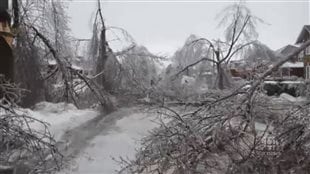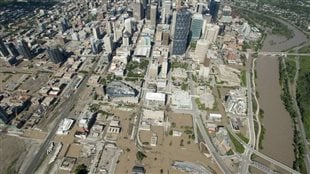
A new report by the Royal Society in the United Kingdom, says the once relatively uncommon extreme weather events, are already becoming the new norm and will only increase in the decades to come
Human-caused warming.
The 124 report is called “Resilience to extreme weather” and details expectations of weather conditions over the coming 100 years and says it’s due to anthropogenic activity.
A 2003 heatwave in the UK and Europe is estimated to have resulted in the deaths of tens of thousands of people, mostly elderly.
The report compiled by scientists says that if greenhouse gas emmissions continue on their current trajectory, flooding will increase four-fold, boiling summers increase 10-fold.

It says such extremes will affect people’s ability to work outdoors and will hurt food production, especially in Africa, Asia, and parts of North, South and Central America.
Anthropongenic climate change- certainty
The report states:
“The total anthropogenic greenhouse gas emissions were the highest in human history from 2000 to 2010 and reached 49 (±4.5) gigatonnes of carbon dioxide equivalent per year in 2010. If emissions continue on the current trajectory, without additional steps to reduce them, the global mean surface temperature increase in 2100 will be between 3.7 and 4.8 ºC compared to preindustrial levels.
There are a large variety of mitigation options available, across a wide range of sectors from buildings and urban areas to agriculture and other land uses. So this upper end of future climate change is not unalterable. However, reaching the lower end and the much discussed target of ‘a global average temperature increase of less than 2 ºC relative to pre-industrial levels’ will require much more rapid implementation of these options than seen today. Regardless of the future emissions pathway, at least some level of climate change is already certain because of current and past greenhouse gas emissions.

The report also says projections are difficult to gauge accurately due to natural variability of global weather – and lack of detailed data available.
It indicated that because of that variability and data gap there might be even more “unprecedented extremes” than they have suggested.
It says for example the freak heat wave that hit Europe and which resulted in the deaths of tens of thousands, mostly elderly, could become much more frequent.
The report says that governments must begin now working on plans to mitigate the effects of extreme weather, and work together internationally to develop mitigation plans, reduce greenhouse emmissions, and prepare for more international aid.







For reasons beyond our control, and for an undetermined period of time, our comment section is now closed. However, our social networks remain open to your contributions.